Champions League Stadiums & Stats
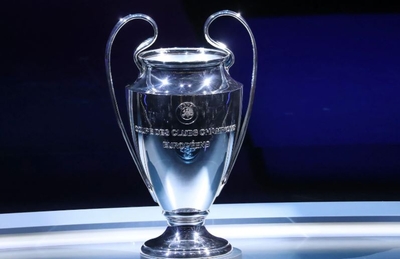
The Champions League, formerly known as the European Cup, is the pinnacle of club football in Europe if not the world. Each year, teams from Europe’s top 55 ranked leagues (except Lichtenstein) enter the competition.
The final 36 then compete for a place in the final 16 knock out stage, culminating in late May or early June each year with one of the biggest sporting events in the calendar – the Champions League final.
The final is usually held at a pre-determined neutral location, but went through 3 years of notable last minute changes in the early 2020s. For 2024 the final will be held at Bayern Munich’s Allianz Arena.
The Champion’s League winner can expect to receive €20 million on top of the millions in fees for reaching the group stages and later stages. At the most, teams can earn over €85 million.
On this page you will find all of the information about the Champions League from the qualifying stages to the final. This includes tournament and club statistics, fixtures, stadium details, history and more.
Champions League Stadiums
| Stadium | Year Opened | Capacity | Ave Attendance | Record Attendance | Record Attendance Match |
|---|---|---|---|---|---|
|
Allianz Arena
Bayern Munich |
2005 | 75024 | 75000 | 75000 | B Munich v Schalke 04 (2015) |
|
Anfield
Liverpool FC |
1884 | 61015 | 55809 | 61905 | Liverpool v Wolves (1952) |
|
BayArena
Bayer Leverkusen |
1958 | 30210 | 27769 | 30210 | Multiple Matches |
|
Camp Nou
FC Barcelona |
1957 | 105000 | 0 | 120000 | Barcelona v Juventus (1986) |
|
Celtic Park
Celtic |
1892 | 60411 | 59038 | 83500 | Celtic v Rangers (1938) |
|
De Kuip
Feyenoord |
1937 | 51177 | 47500 | 65427 | Feyenoord v Twente (1968) |
|
Estadio da Luz
Benfica |
2003 | 64642 | 38250 | 65400 | Benfica v Nacional (2003) |
|
Estadio Jose Alvalade
Sporting CP |
2003 | 50095 | 39988 | 49699 | Sporting CP v Benfica (2016) |
|
Estadio Metropolitano
Atletico Madrid |
2017 | 70460 | 59121 | 69500 | Atlético Madrid v Real Madrid (2024) |
|
Jan Breydel Stadium
Club Brugge KV |
1975 | 29062 | 26129 | 28728 | |
|
Juventus Stadium
Juventus |
2011 | 41507 | 39489 | 41470 | Juventus v Roma (Dec 2016) |
|
MHPArena (Stuttgart)
VfB Stuttgart |
1933 | 60058 | 55121 | 97553 | Germany-Switzerland (22nd November 1950) |
|
Parc des Princes
Paris Saint-Germain |
1972 | 47929 | 46930 | 49575 | PSG v Waterschei (1983) |
|
Philips Stadion
PSV Eindhoven |
1910 | 35000 | 33135 | 35000 | PSV v Man United (2015) |
|
Rajko Mitić Stadium
Red Star Belgrade (FK Crvena zvezda) & Serbia National Team |
1963 | 53000 | 13566 | 110000 | Red Star v Ferencváros (23/04/1975) |
|
Red Bull Arena (Leipzig)
RB Leipzig |
2004 | 47069 | 45175 | 47069 | Several |
|
Red Bull Arena (Salzburg)
FC Red Bull Salzburg |
2003 | 31895 | 7011 | 30188 | FC Red Bull Salzburg v Arsenal (2007) |
|
San Siro
AC Milan & Inter Milan |
1926 | 80018 | 48358 | 83381 | Inter Milan v Schalke (1997) |
|
Santiago Bernabéu
Real Madrid |
1947 | 85000 | 72061 | 128000 | Real Madrid v D Zagreb (1974) |
|
Signal Iduna Park
Borussia Dortmund |
1974 | 81365 | 81305 | 83000 | Dortmund v Schalke 2004 |
|
Stade Louis II
AS Monaco |
1985 | 16360 | 11619 | 18523 | Monaco v Chelsea (2004) |
|
Stade Pierre-Mauroy
Lille OSC Métropole |
2012 | 50186 | 29487 | 48960 | Lille v PSG (2014) |
|
Stadio Atleti Azzurri d’Italia
Atalanta |
1928 | 21300 | 17921 | 43000 | Unknown |
|
Stadion Maksimir
Dinamo Zagreb / Croatia |
1912 | 35123 | 3875 | 64138 | NK Zagreb v NK Osijek (1973) |
|
The Emirates
Arsenal FC |
2006 | 60704 | 60236 | 60383 | Arsenal v Wolves (November 2019) |
|
The Etihad
Manchester City FC |
2003 | 55000 | 53249 | 55097 | Manchester City vs Manchester United (03/03/2024) |
|
Villa Park
Aston Villa FC |
1897 | 42640 | 41921 | 76588 | Aston Villa v Derby County (1946) |
|
Volksparkstadion
Hamburg SV |
2000 | 57000 | 55960 | 57000 | Hamburg v Bayern Munich (2009) |
Final
| Fixture | Date & Time | Stadium | ||
|---|---|---|---|---|
 ? ? | v |  ? ? | Sat 31st May | Allianz Arena |
Quarter Finals
| Fixture | Date & Time | Stadium | ||
|---|---|---|---|---|
 Arsenal Arsenal | v |  Real Madrid Real Madrid | Tues 8th April | The Emirates |
 B Munich B Munich | v |  Inter Milan Inter Milan | Tues 8th April | Allianz Arena |
 Barcelona Barcelona | v |  B Dortmund B Dortmund | Wed 9th April | Estadi Olímpic Lluís Companys |
 PSG PSG | v |  Aston Villa Aston Villa | Wed 9th April | Parc des Princes |
 Aston Villa Aston Villa | v |  PSG PSG | Tues 15th April | Villa Park |
 B Dortmund B Dortmund | v |  Barcelona Barcelona | Tues 15th April | Signal Iduna Park |
 Inter Milan Inter Milan | v |  B Munich B Munich | Wed 16th April | San Siro |
 Real Madrid Real Madrid | v |  Arsenal Arsenal | Wed 16th April | Santiago Bernabéu |
Round of 16
| Fixture | Date & Time | Stadium | ||
|---|---|---|---|---|
 Club Brugge Club Brugge | v |  Aston Villa Aston Villa | Tues 4th Mar | Jan Breydel Stadium |
 B Dortmund B Dortmund | v |  Lille Lille | Tues 4th Mar | Signal Iduna Park |
 PSV PSV | v |  Arsenal Arsenal | Tues 4th Mar | Philips Stadion |
 Real Madrid Real Madrid | v |  Atl Madrid Atl Madrid | Tues 4th Mar | Santiago Bernabéu |
 Feyenoord Feyenoord | v |  Inter Milan Inter Milan | Wed 5th Mar | De Kuip |
 B Munich B Munich | v |  Leverkusen Leverkusen | Wed 5th Mar | Allianz Arena |
 Benfica Benfica | v |  Barcelona Barcelona | Wed 5th Mar | Estadio da Luz |
 PSG PSG | v |  Liverpool Liverpool | Wed 5th Mar | Parc des Princes |
 Barcelona Barcelona | v |  Benfica Benfica | Tues 11th March | Estadi Olímpic Lluís Companys |
 Leverkusen Leverkusen | v |  B Munich B Munich | Tues 11th March | Bay Arena |
 Inter Milan Inter Milan | v |  Feyenoord Feyenoord | Tues 11th March | San Siro |
 Liverpool Liverpool | v |  PSG PSG | Tues 11th March | Anfield |
 Lille Lille | v |  B Dortmund B Dortmund | Wed 12th March | Stade Pierre-Mauroy |
 Arsenal Arsenal | v |  PSV PSV | Wed 12th March | The Emirates |
 Aston Villa Aston Villa | v |  Club Brugge Club Brugge | Wed 12th March | Villa Park |
 Atl Madrid Atl Madrid | v |  Real Madrid Real Madrid | Wed 12th March | Wanda Metropolitano |
Tournament Format
Qualification Format
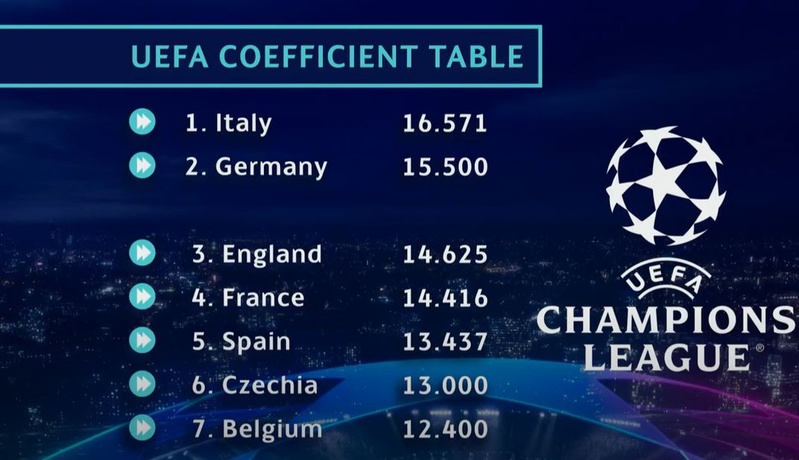
The system of qualification for the Champions League has changed a few times over the years. From 2009 it seemed to have settled into a fairly fixed format, but a major overhaul was introduced for the 24/25 season onwards.
Automatic qualification is given to the winners and some runners up from the top European football league members. This system is based on the UEFA coefficient rankings, calculated based on the number and results of games from club teams and the national team of each country.
Teams from the top ranked associations receive automatic places for finishing as champions or runners up in their respective leagues.
There are also league places given to the current title holders, Europa League winner from the previous season, and 2 European performance Spots which go to clubs from the 2 associations with the highest coefficient points the previous year.
As you can already tell, it’s pretty complicated. This table shows the nations with automatic qualification to the league stage, and how many teams from that nation qualify automatically.
| Country | 1st Place | 2nd Place | 3rd Place | 4th Place | Total |
|---|---|---|---|---|---|
 England England |
Yes | Yes | Yes | Yes | 4 |
 Spain Spain |
Yes | Yes | Yes | Yes | 4 |
 Germany Germany |
Yes | Yes | Yes | Yes | 4 |
 Italy Italy |
Yes | Yes | Yes | Yes | 4 |
 France France |
Yes | Yes | Yes | 3rd Q Round | 4 |
 Netherlands Netherlands |
Yes | Yes | 3rd Q Round | – | 3 |
 Portugal Portugal |
Yes | 3rd Q Round | – | – | 2 |
 Belgium Belgium |
Yes | 3rd Q Round | – | – | 2 |
 Scotland Scotland |
Yes | 3rd Q Round | – | – | 2 |
 Austria Austria |
Yes | 3rd Q Round | – | – | 2 |
#Russia will not compete in the next tournament due to their ongoing suspension from UEFA in light of the war in Ukraine.
Everyone else has to go through the qualifying stages. These are no less convoluted, sadly, so bear with me.
There are numerous qualifying rounds, and exactly when each team enters the competition again depends on their football associations’ coefficient rankings. This means that after each round, the winning teams go through to the next round and are joined by new teams who for whom this will be their first qualifying game.
So teams from higher ranked associations start later in the qualifying rounds, while those from lower ranked associations have a longer slog.
Here’s how it works:
- 1st Qualifying Round –28 champions from associations 26–28 and 30–55 (except Liechtenstein).
- 2nd Qualifying Round – 8 champions from associations 15–18 and 20–24 (except Russia), 2 champions from associations 25 and 29 as the team with highest club coefficient from the first qualifying round league path originally, 4 runners-up from associations 11–14.
- 3rd Qualifying Round – 2 runners-up from associations 8–9, 1 third-placed team from association 6, 1 fourth-placed team from association 5, 2 runners-up from associations 10 and 15 as the team with highest club coefficient from the second qualifying round league path originally.
- Play Off Round – 3 champions from associations 11–13, 1 champion from association 19 as the team with highest club coefficient from the second qualifying round league path originally
That explains the order that teams enter the competition, and the table below shows the same information alongside how many teams already in the competition progress at each stage:
| Round | New Teams Entering | Teams from Previous Round | Teams Total | No Fixtures |
|---|---|---|---|---|
| 1st Qualifying Round | 28 | – | 28 | 28 |
| 2nd Qualifying Round | 14 | 14 | 28 | 28 |
| 3rd Qualifying Round | 6 | 14 | 20 | 20 |
| Play Off Round | 4 | 10 | 14 | 14 |
At each stage, the result is decided over 2-legs, so every team plays at home and away regardless of who their opponents are.
As you may have already worked out, this means just 7 teams make it from the qualifying stages to the league stage which comes next, so any team from the early qualifying rounds making it to the league stage really has done well.
The majority of the clubs in the league phase gain automatic qualification as explained in the table at the top of this section.
League Phase

The final 36 teams are segregated into 4 pots based on each team’s own UEFA coefficient ranking over the previous five years. Each team will then face two teams drawn from each pot, one at home and one away. These are single leg games. In this way, each team faces a similar calibre of opposition throughout the league stage.
There is an additional protection that ensures teams from the same country cannot meet at this stage.
The league works as most other top leagues, issuing 3 points for a win, 1 for a draw, and 0 for a loss. As teams play and move up and down the table, and final standing will emerge that dictates what happens next.
The 8 teams at the top of the league will go on to the Round of 16 in the Knock Out Stages. The next 16 teams will have to get through a play-off round, where each team is drawn an opponent and an overall winner is decided over 2-legs. This means that 8 more teams will progress to the knock out stages, totalling 16.
The 12 teams at the bottom of the league are out of the competition.
This is a huge change from the old Group Stages, which, we are told, is so teams in the league phase have more to play for. In reality, the addition of two match weeks and an entire 16 fixture play-off round gives more power to commercial TV rights and sponsorship deals. So it’s about money.
Knock Out Stages and Final
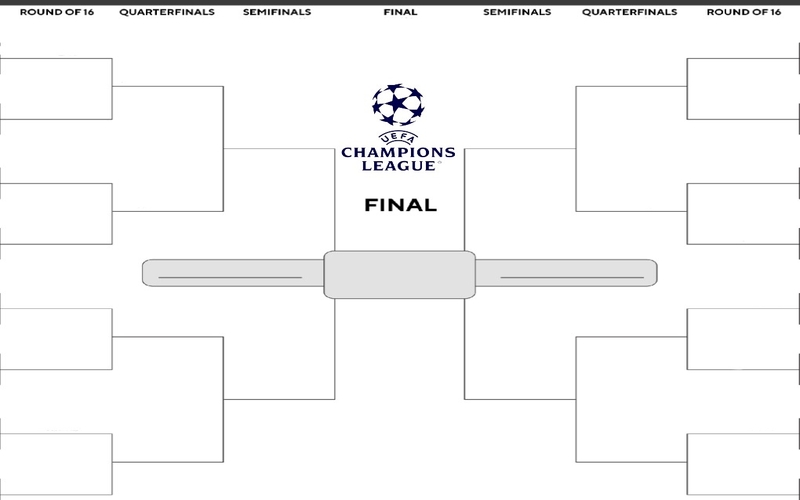
In the last 16, the 8 automatic qualifiers are drawn against the 8 teams that progressed via playoffs, however, there are protections that prevent teams form the same country meeting at this stage. Teams play two legs, home and away, and if the match is a draw after two legs the game will progress to extra time and then penalties if required (the ‘away goal’ rule no longer applies).
The fixtures are also arranged so that the highest performing team in the league stage faces the lowest performing team to come through the playoffs, then second best performing to second worst, and so on. This supposedly rewards the teams that do the best with an easier journey to the final, while making those who only just made it work harder to progress any further.
From the Round of 16 to the finals, there are no more draws, the teams simply play whoever won their opposite game, although two legs are played at each stage right up until the final, which is decided over a single game.
The Champions League Final is held at a pre-defined venue selected before the start of the season. This is intended to be a neutral venue although several times in the past teams have has the fortune to play the final at their own stadium. See the table of previous winners for them all.
The final is played over 90 minutes. If the game is a draw, the match will then go to extra time of 15 minutes each way, and eventually penalties if there is still no winner found.
Previous Winners
The table below shows the previous winners, results and hosts of the Champions League since it was rebranded in 1992
| Host City | Year | Winner | Stadium |
|---|---|---|---|
 Munich Munich |
2025 | ? | Allianz Arena |
 London London |
2024 | Real Madrid | Wembley |
 Istanbul Istanbul |
2023 | Man City | Atatürk Olympic Stadium |
 Paris Paris |
2022 | Real Madrid | Stade de France |
 Porto Porto |
2021 | Chelsea | Estádio do Dragão |
 Lisbon Lisbon |
2020 | Bayern Munich | Estadio da Luz |
 Madrid Madrid |
2019 | Liverpool | Wanda Metropolitano |
 Kiev Kiev |
2018 | Real Madrid | NSC Olimpiyskiy |
 Cardiff Cardiff |
2017 | Real Madrid | Principality Stadium |
 Milan Milan |
2016 | Real Madrid | San Siro |
 Berlin Berlin |
2015 | Barcelona | Olympiastadion |
 Lisbon Lisbon |
2014 | Real Madrid | Estadio da Luz |
 London London |
2013 | B Munich | Wembley |
 Munich Munich |
2012 | Chelsea | Allianz Arena |
 London London |
2011 | Barcelona | Wembley |
 Madrid Madrid |
2010 | Inter Milan | Bernabéu |
 Rome Rome |
2009 | Barcelona | Stadio Olimpico |
 Moscow Moscow |
2008 | Man United | Luzhniki Stadium |
 Athens Athens |
2007 | AC Milan | Olympic Stadium |
 Saint-Denis Saint-Denis |
2006 | Barcelona | Stade De France |
 Istanbul Istanbul |
2005 | Liverpool | Atatürk Olympic Stadium |
 Gel'kirchen Gel'kirchen |
2004 | Porto | Arena AufSchalke |
 Manchester Manchester |
2003 | AC Milan | Old Trafford |
 Glasgow Glasgow |
2002 | Real Madrid | Hampden Park |
 Milan Milan |
2001 | B Munich | San Siro |
 Saint-Denis Saint-Denis |
2000 | Real Madrid | Stade De France |
 Barcelona Barcelona |
1999 | Man United | Borussia Park |
 Amsterdam Amsterdam |
1998 | Real Madrid | Amsterdam Arena |
 Munich Munich |
1997 | B Dortmund | Olympiastadion |
 Rome Rome |
1996 | Juventus | Stadio Olimpico |
 Vienna Vienna |
1995 | Ajax | Ernst-Happel-Stadion |
 Athens Athens |
1994 | AC Milan | Olympic Stadium |
 Munich Munich |
1993 | Marseille | Olympiastadion |
All-Time Winners
| Club | Country | Wins | Year(s) |
|---|---|---|---|
| Real Madrid |  |
15 | 2024, 2022, 2016-18, 2014, 2002, 2000, 1998, 1966, 1956-1960 |
| AC Milan |  |
7 | 2007, 2003, 1994, 1990, 1989, 1969, 1963 |
| Liverpool |  |
6 | 2019, 2005, 1984, 1981, 1977, 1978 |
| B Munich |  |
6 | 2020, 2013, 2001, 1974-1976 |
| Barcelona |  |
5 | 2015, 2011, 2009, 2006, 1992 |
| Ajax |  |
4 | 1995, 1973, 1972, 1971 |
| Inter Milan |  |
3 | 2010, 1965, 1964 |
| Man United |  |
3 | 2008, 1999, 1968 |
| Juventus |  |
2 | 1996, 1985 |
| Benfica |  |
2 | 1962, 1961 |
| Notts Forest |  |
2 | 1980, 1979 |
| Porto |  |
2 | 2004, 1987 |
| Chelsea |  |
2 | 2012, 2021 |
| Celtic |  |
1 | 1967 |
| Hamburg |  |
1 | 1983 |
| S Bucharest |  |
1 | 1986 |
| Marseille |  |
1 | 1993 |
| B Dortmund |  |
1 | 1997 |
| Chelsea |  |
1 | 2012 |
| Feyenord |  |
1 | 1970 |
| Aston Villa |  |
1 | 1982 |
| PSV Eindhoven |  |
1 | 1988 |
| Red Star Belgrade |  |
1 | 1991 |
| Man City |  |
1 | 2023 |
British Club Performance
| Club | Cups | Runners Up | Played | Wins |
|---|---|---|---|---|
| Liverpool | 6 | 4 | 248 | 144 |
| Man United | 3 | 2 | 299 | 161 |
| Notts Forest | 2 | 5 | 20 | 12 |
| Chelsea | 2 | 1 | 201 | 104 |
| Man City | 1 | 1 | 129 | 74 |
| Aston Villa | 1 | 0 | 15 | 9 |
| Leeds United | 0 | 1 | 39 | 21 |
| Arsenal | 0 | 1 | 211 | 106 |
| Tottenham | 0 | 1 | 63 | 28 |
| Newcastle United | 0 | 0 | 6 | 1 |
Champions League Stats
| Tournament Stats | |
|---|---|
| First Year | 1955 - 1956 Season |
| Titles (Nation) | Spain (20) |
| Titles (City) | Madrid (15) |
| Highest Attendance | 127,621 (Hampden Park 1960) |
| Prize Money Winner | €20,000,000 (2023) |
| Group Stage Base Fee | €15,640,000 (2023) |
| Qualifying Teams | 52 |
| Final Teams | 36 |
| Club Stats | |
|---|---|
| Titles | Real Madrid - 15 |
| Runner Up | Juventus - 7 |
| Appearances | Real Madrid - 43 |
| Games Played | Real Madrid - 489 |
| Games Won | Real Madrid - 294 |
| Goals Scored | Real Madrid - 1,075 |
| Goals Conceded | Real Madrid - 536 |
| Biggest Win | D Bucharest 11 - 0 Crusaders (1974) |
| Manager Titles | 5 - Carlo Ancelotti (2003 & 2007 Inter Milan, 2014, 2022, 2024 Real Madrid) |
| Least Wins for Title | Man United - 5 (1999 Champions League), PSV - 3 (European Cup 1988) |
| Consecutive Tournaments | Real Madrid - 27 |
| Consecutive Titles | Real Madrid - 5 (1956-60) |
| Consecutive Clean Sheets | Arsenal - 10 (2006) |
| Player Stats | |
|---|---|
| Titles | Francisco Gento, Toni Kroos, Luka Modric, Dani Carvajal, Nacho - 6 |
| Appearances | Cristiano Ronaldo - 183 (Real Madrid, Man Utd & Juventus) |
| Goals | Cristiano Ronaldo - 140 (Real Madrid, Man Utd & Juventus) |
| Goals Single Season | Cristiano Ronaldo - 17 (Real Madrid 2013-14) |
| Golden Boot | Cristiano Ronaldo - 7 |
| Fastest Goal | 10.2 Seconds (Roy Makaay 2007) |
About the Champions League
The Beginnings

In a similar story to the European Championships the creation of a Europe wide club football competition was delayed until the mid 1950’s primarily due to political tensions on the continent.
A few precursors existed prior to the second world war. In 1897 an international competition was formed for clubs in the Austro-Hungarian empire known as the Challenge Cup. This knock-out tournament was played between teams that mainly hailed from Prague, Vienna and Budapest and continued until 1911.
In 1927 a tournament modelled on the Challenge Cup called the Mitropa Cup began and continued until after WWII. This was intended to assist central European nations in setting up their own professional leagues.
In 1930 Swiss club Servette made an attempt to create a European club championship. They invited 10 major European teams to compete with the trophy won by Hungarian club Ujpest. Unfortunately, in spite of its success, the competition was never repeated.
Following the war a small Latin Cup was created as a knock-out tournament between Portugal, Italy, France and Spain but never expanded
It was the French publication L’Equipe that played a massive role in creating the European Cup just as they had played a similarly important role in the creation of the European Championship. Journalists Jacques Ferran and Gabriel Hanot are documented as the first to put proposals forward after being inspired by a visit to the South American Championship of Champions.
The European Champion of Clubs’ Cup was finally conceived in Paris and began in 1955.
1955 – 1960 European Champions Cup
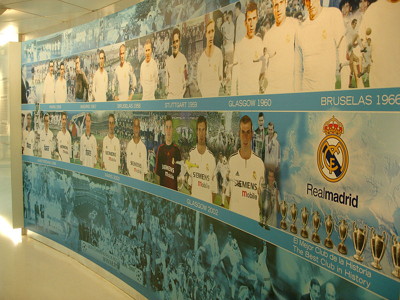
In its first season 16 teams participated from around Europe. Scottish team Hibernian entered but the English FA’s secretary Alan Hardaker denied the then English champions Chelsea from entering citing it was against the interest of English club football.
The first ever match took place between Sporting CP and Partizan and ended as a 3-3 draw, the first ever goal being scored by Sporting’s Baptista Martins.
The first ever championship was won by Real Madrid who came from behind to win 4-3 in the final at the Parc des Princes in Paris.
for the following 1956-57 season English Champions Manchester United decided to defy the governing body and enter the European Champions Cup. It was however Real Madrid that successfully defended the trophy beating Fiorentina at their home stadium, the Bernabeu. Real Madrid continued to dominate the tournament until winning it on 5 consecutive occasions until 1960.
Munich Air Disaster
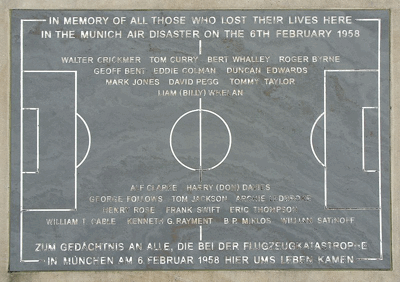
Manchester United entered the European Cup again after winning the English league in 1957. Having just advanced to the semi-final after beating Red Star Belgrade in Yugoslavia the Manchester United plane stopped in Munich for refuelling.
On a day of bad weather the British Airways plane crashed on a third attempt at take-off killing 23 out of 44 people on the plane including the main body of Manchester United’s Busby Babes along with journalists and other staff.
Still recognised as one of the worst ever footballing disasters it took over 10 years for Manchester United to reach a similar level again, eventually rebuilding to win the European Cup in 1968.
1961 – 1969
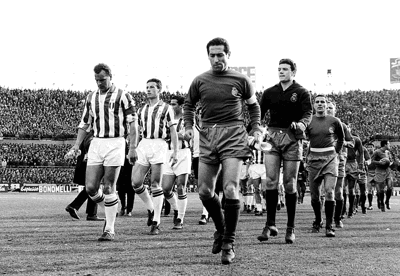
Real Madrid’s dominance came to an end when they were knocked out of the 1961 competition by their bitter rivals Barcelona in the quarter finals. Benfica then began their own short dominance by beating Barcelona in the 1961 final 3-2 before beating Real Madrid themselves 5-3 in the 1962 final.
The baton was passed on again as AC Milan beat Benfica in the 1963 final before rivals Inter Milan won the trophy in 1964 and 1965 in an era of dominance for the city that holds the current record of 6 European Cup wins between the two Milanese teams.
Real Madrid returned win in 1966, beating FK Partisan at Heysel Stadium in Brussels. This was the last time real would win the trophy again for over three decades.
1967 and 1968 saw British teams come to the fore at last. Celtic won the European Cup in 1967 beating Inter Milan 2-1 in the final held in Lisbon. Matt Busby’s Manchester United won the cup the following year ten years after the devastating Munich disaster beating Benfica 4-1 after extra time at Wembley.
It was another victory for AC Milan that saw the decade out with a win over the emerging Dutch champions Ajax.
1970 – 1984
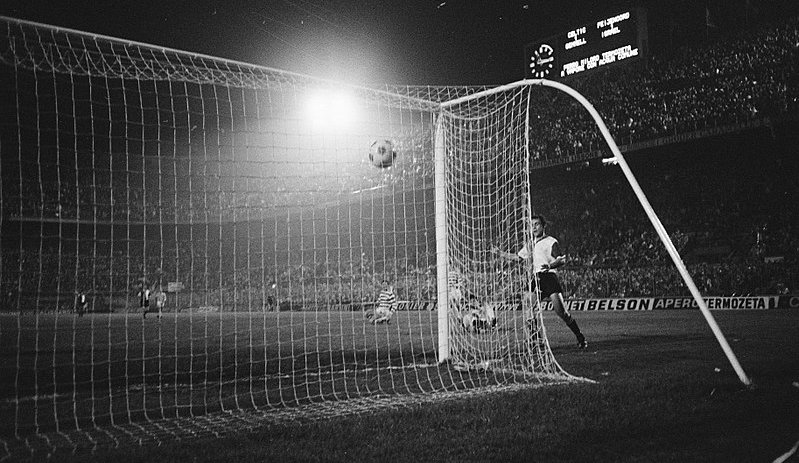
It was the Dutch and Germans that dominated the early 1970’s. Feyenoord beat Celtic in the 1970 final to prevent the Scottish club winning the cup for a second time. This was followed by three wins on the trot for the team branded ‘total football’ containing the Johan Cruyff as Ajax won in 1971, 1972 and 1973. It was Germany’s turn next as Bayern Munich won three on the bounce in 1974, 1975 and 1976.
England’s most successful club in Europe, Liverpool, were next to claim the crown as Bob Paisley, who holds the managerial record of 3 European Cup wins, drove his team to claim the crown Liverpool beat Borussia Mönchengladbach 3-1 in Rome to bring the title home in 1977.
This started a period of 8 years of dominance from English teams as Liverpool were again champions the following year in 1978 beating Club Bruge 1-0 at Wembley. Nottingham Forrest became the only club in history to win the European Cup on more occasions than their domestic league as the won the competition in 1979, beating Malmo 1-0 in Munich, and 1980, beating Hamburg at the Bernabeu. This was followed by Liverpool again who won the cup for a third time in 1981, defeating Real Madrid 1-0 at the Parc des Princes in Paris, before Aston Villa won the European Cup for the first and only time in 1982 by beating Bayern Munich 1-0 in Rotterdam.
After a blip that saw Hamburg claim the crown in 1983 against Juventus it was again Liverpool’s turn. Joe Fagan, in his only year in charge, completed a cup treble for Liverpool by beating Roma 1-0 at their home stadium in Rome to win the cup for the 4th time.
Heysel Stadium Disaster 1985
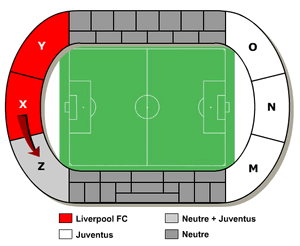
In 1985 Liverpool were aiming to win the European Cup again for the 5th time as they took on Juventus in the final at Brussels Heysel Stadium. Liverpool were beaten 1-0 in a result overshadowed by the death of 39 and injury of 600 mainly Juventus fans.
Disruption in the Liverpool end an hour prior to kick off led to the collapse of a concrete retaining wall onto the Italian fans. The match continued, something that would never happen in the modern day and Liverpool lost.
As a consequence of Heysel, combined with an already tense situation of hooliganism in English football, all English clubs were banned from Europe for 5 years, Liverpool for 8, later reduced to 6.
English clubs therefore did not renter the competition until 1990.
Read more about the Heysel stadium disaster.
1985 – 1992
With the dominant English clubs banned from the competition the European Cup was won by 6 different clubs over the next seven years.
Steaua Bucharest win in 1986 followed by Porto in 1987, PSV Eindhoven in 1988, AC Milan back to back in 1989 and 1990, Red Star Belgrade won in 1991 before Barcelona won the trophy for the first time in 1992. This was the last time the competition was titled the European Cup
Champions League 1993 – 1999
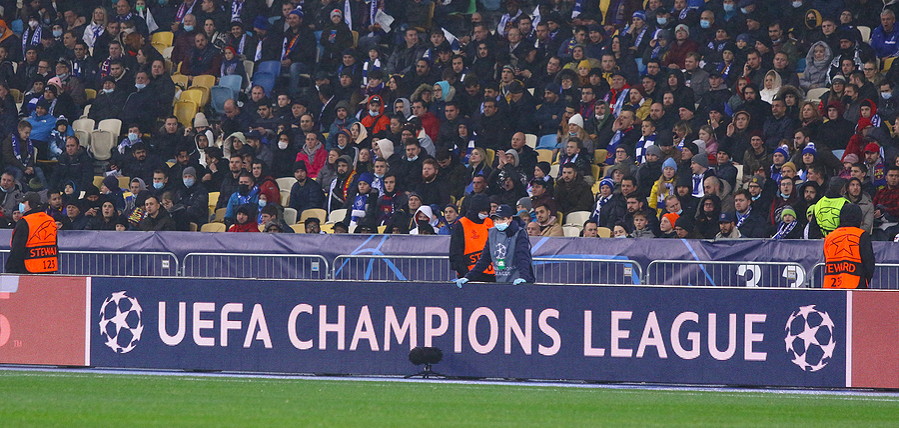
In one of the most successful rebranding’s ever the European Cup was changed to the UEFA Champions League. The new competition came with enhanced marketing and TV rights that rapidly made the competition the richest club competition in the world. The first Champions League was won by Marseille, becoming the first, and only, French team to win the title, beating AC Milan in the final in Munich. Marseille were embroiled in controversy in the same year as it emerged their chairman, Bernard Tapie, has been involve in match fixing. This lead to Marseille being stripped of their Ligue 1 but not Champions League title. Marseille were then banned from defending their Champions League title in 1994.
The early years of the Champions League carried on where the European Cup left off seeing a variety of winners before the end of the century. AC Milan shocked a lauded Barcelona team in 1994 winning 4-0 in Athens in what is cited as one of the best ever European finals. Milan reached the final the following year only to be beaten by Ajax 1-0 in Austria in 1995. 1996 saw Juventus win the trophy for the second time beating holders Ajax 4-2 on penalties. Borussia Dortmund claimed their first Champions league title in 1997 against holders Juventus in Munich.
Real Madrid finally returned to the top winning the Champions League 1998 after a gap of 32 years beating Juventus 1-0. 1998 was also the first year in which second placed clubs from Europe’s top leagues were allowed entry.
Manchester United won the European Cup for the second time in 1999, one of the 3 trophies in their momentous treble season. They were the first club to win the tournament having not been reigning champions of their own league, since they finished runners up to Arsenal the season previous, in 1997-98.
In the final game, United won 2-1 in a thrilling final that shocked dominant Bayern Munich. Bayern were winning 1-0 but were rocked as the Red Devils scored two injury time goals and stole the title from under them in dramatic scenes that are unlikely to ever be matched.
New Millennium 2000 – 2004
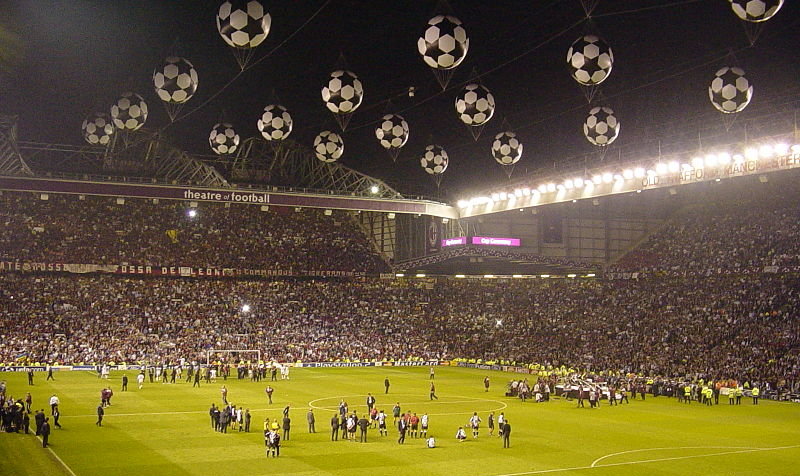
Real began a new era of dominance winning at the same time UEFA Champions League qualification was further relaxed now allowing 3rd and even 4th placed teams to enter from UEFAs top ranked domestic leagues.
Real won in 2000 and 2002 with Bayern Munich winning in 2001.
An all Italian final in 2003 saw Milan prevail for their 6th title beating Juventus 3-2 on penalties after a 0-0 draw at Old Trafford. Porto claimed their second title a year later in 2004 defeating Monaco 3-0 in France.
One Night In Istanbul

In 2005 Liverpool won their British record 5th European Cup and first trophy since it was rebranded the Champions League.
The final in which Liverpool beat AC Milan 3-2 on penalties following a 3-3 draw is widely regarded as the most entertaining final yet.
Liverpool were 3-0 down at half time and looked humiliated and in damage limitation mode, only for a miraculous second half comeback in which they drew level in just 7 minutes of football.
Liverpool won on penalties largely thanks to the antics of their keeper, Jerzy Dudek.
Not the most convincing way of doing it, but a win is a win.
2006 – 2015
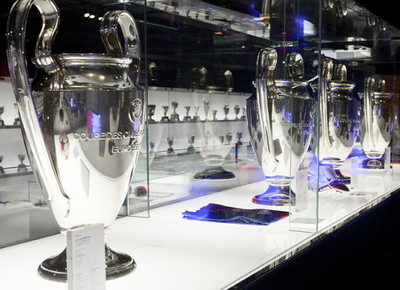
In recent years the European Cup has been shared between Europe’s four biggest nations, Spain, England, Italy and Germany.
From Spain Barcelona emerged as the most dominant team in the competition since Real Madrid in the 1950’s winning the 2006 final 2-1 against Arsenal, in 2009 they won 2-0 and in 2011 3-1 both Vs Manchester United. Barcelona capped 4 wins in 9 years with a 3-1 win over Juventus in 2015 in Berlin.
Despite Barcelona’s dominance perhaps the most notable event was Real Madrid winning ‘La Decima’, their 10th European Cup in 2014 betting local rivals Atletico Madrid 4-1 Lisbon. They will surely remain the only club to achieve double digits for a long time to come.
Following Liverpool’s success in 2005, it was Manchester United’s turn to win their 3rd Cup beating Chelsea in a dramatic 6-5 penalty shoot-out after a rather drab 1-1 draw. Chelsea won the cup for the first time on their second final appearance in 2011, this time winning on penalties 4-3 over Bayern Munich in their home stadium.
Bayern Munich prevented domestic rivals Borussia Dortmund winning their second title in 2013 beating them 2-1 at Wembley for the only title to go to Germany over the last ten years.
The remaining two cups both went to Milan. AC Milan won their 7th competition getting revenge on Liverpool in the process beating then 2-1 in Athens in 2007. Inter Milan became the last Italian team to win in 2009 beating Bayern Munich 2-0 at the Bernabeu.
2016 –

The 2016 final saw even more heart break for Atletico Madrid who were beaten by local rivals Real Madrid on penalties, almost a remake of the 2014 final. The following year in 2017 Real Madrid won a consecutive title beating Juventus comfortable 4-1, Ronaldo staring again. Real won again in 2018, making it three in a row, beating Liverpool thanks to a Gareth Bale wonder goal and some terrible errors by the Liverpool goal keeper.
With 13 titles now in the bag it would take decades potentially for any other club to catch Real Madrid, that is providing they don’t now start a whole new Champions League dynasty.
Liverpool might be one team with something to say about that. The most successful English club in Europe added their sixth title in 2019 beating tottenham in an all English Final. The game itself was poor, Liverpool winning 2-0 on the night in Madrid, but it was the build up that marked the 2018-19 campaign, that saw more comebacks than any other previous Champions League.
2020 was a special year due to the shutdown caused by corona virus. This meant the entire knockout phase was played with no spectators over a two week period at Benfica’s Estadio da Luz and Sporting Lisbon’s Esadio Jose Alvalde Stadiums. Bayern Munich won the final 1-0 against PSG in Lisbon in what was called the battle between old money and new money. All games were played over one-leg and this format was very much enjoyed by fans – not that UEFA took note.
English clubs continued to show their status in the modern game with Man City and Chelsea reaching the 2021 final, a season also disrupted by corona virus and mostly played behind closed doors. City were heavy favourites with Pep Guardiola seeking his first Champions League title for the club, but it was Chelsea who won the day 1-0 as the occasion overawed Man City.
The 2021 final should have been played at Istanbul’s Atatürk Olympic Stadium but this was changed to Porto’s Estádio do Dragão due to travel restrictions in place at the time. Really the final should have been held at Wembley given both clubs were English and travel was not encouraged at the time. In typical UEFA fashion, though, they decided against Wembley simply because the UK government would not waive restrictions for sponsors and dignitaries, demonstrating once and for all the UEFA don’t care about fans.
In 2022 everything returned to normal, not just in terms of crowds coming back but by the fact Real Madrid won it again in a repeat of the 2018 final, beating Liverpool 1-0. Real were not the best team in the competition but found a way to win as they always do with amazing comebacks along the way against PSG, Chelsea and Man City. The final was held at the Stade de France in Paris after Russia’s Krestovsky Stadium in Saint Petersburg was stripped of hosting duties thanks to their country’s invasion of Ukraine.
Man City finally got their own European Cup in 2023 beating Inter Milan 1-0 in Istanbul, allowing them to cement their claim to being one of the best teams of modern times. It wasn’t the same spectacle as the stadium saw in 2005 but as it was their first European Cup win no City fan will really care that it was a boring game. They only managed the quarter finals in 2024 though, where they were knocked out by eventual winners, you guessed it, Real Madrid.
Previous Tournaments
Champions League 2023-24
Wembley played host to the 2024 Champions League final, the third time it has hosted the CL final and the eighth time it has hosted a European Cup Final. There was no English team in the final this time as Read Madrid took on Borussia Dortmund, who had never won the competition. Dortmund were on fire and should have been two or three goals ahead in the first half but as Madrid always do they stayed in the game, kept it 0-0 and then scored twice in the final 15 minutes to win an astonishing 15th European Cup.
Champions League 2022-23
The Atatürk Olympic Stadium, the stadium that hosted the famous 2005 final between Liverpool and AC Milan, this time hosted another English team, Man City, and another team from Milan, Inter Milan. The final was pretty boring with City winning 1-0 but that won’t matter to them as it was their first Euopean Cup triumph and surely not the last for that team
Champions League 2021-22
The final was moved from St. Petersburg’s Krestovsky Stadium to the Stade de France in Paris following sanctions placed on Russia due to the invasion of Ukraine. The move suited the finalists Liverpool and Real Madrid ending up being a perfected located venue. It was Real who came out on top in a repeat of 2018 beating Liverpool by a single goal to claim their 14th cup. The final was marred by abuse from French police who tear gassed innocent women and children, it probaly would have been safer keeping the final in Russia.
Champions League 2020-21
Chelsea won their second title defeating favourites, and first time finalists, Manchester City 1-0 at Porto’s Estádio do Dragão. The final was due to be held in Istanbul’s Atatürk Olympic Stadium but was moved due to travel restrictions at the time
Champions League 2019-20
Bayern Munich won their 6th title in a strange year that saw the competition delayed due to corona virus and the knockout stage from the QF’s played out all over two weeks with single legs in Lisbon. The final was the latest on record taking place on the 23rd August.
Champions League 2018-19
Liverpool avenged their 2018 loss by beating Tottenham in all all English finals in Madrid. The campaign will be remembered more for the spectacular semi-final comebacks rather than the rather drab final itself.
Champions League 2017-18
A stunning overhead goal from Gareth Bale and two horrendous mistakes mistakes by Liverpool’s goalkeeper gifted the third consecutive European Cup to Real Madrid, 13th in all. Held at Kiev’s Olympic stadium.
Champions League 2016-17
Real Madrid took on Juventus in the final at Cardiff’s Principality Stadium winning their 12th European title and second in a row.
